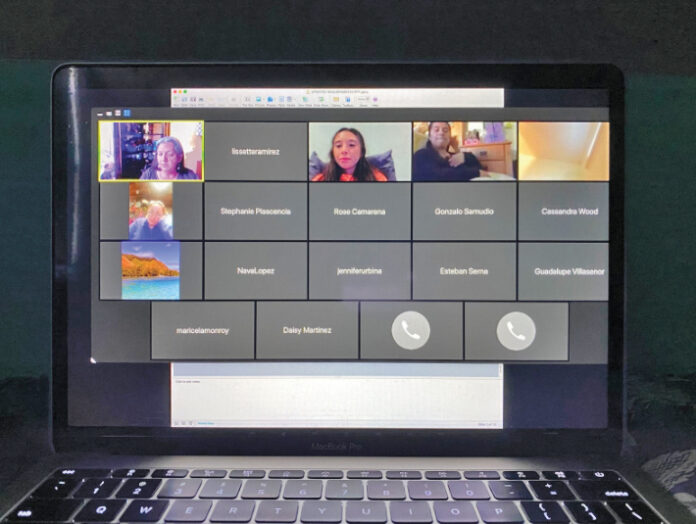By Jazmin Juarez, Special to the Pajaronian
SANTA CRUZ COUNTY—The coronavirus has brought many changes to people’s everyday lifestyle. Among them, the transition from in-person to online classes for students.
In Santa Cruz County, Cabrillo College switched to online courses on March 16. The school has worked along with professors to smooth the transition for its roughly 13,000 students.
Cabrillo College President Matt Wetstein says that resources normally offered on campus are now available digitally. Students are able to call, email or set up a virtual meeting with counselors, financial aid staff and tutors, among other employees.
As of now, the spring and summer semesters will continue through online courses. Wetstein says he is unsure if the fall semester will be impacted by the outbreak, but sees a good future for online classes. He advised students who plan on transferring for the fall semester to contact a counselor to find the best option.
Instructors are offering online meetings, and have helped each other set up their Zoom accounts to better understand the program themselves. They are trying to be lenient with deadlines and have not been penalizing students for not having Internet access at home, says Skye Gentile, professor and chair of the communications department.
Wetstein said there has been an increase in students looking to withdraw from courses, as the COVID-19 crisis continues to add economic pressure. But he said that there are several students who are trying their best to get through the semester and finish.
The semester ends May 23.
“I know that we do have some students who are worried,” Wetstein says. “They are facing a health crisis, they’re facing an economic crisis.”
The California Employment Development Department (EDD) said it processed 1,123,727 unemployment insurance claims during the final two weeks of March, with those numbers escalating each week.
Locally, Santa Cruz County officials have said the unemployment rate is expected to reach 19.3 percent in May.
It typically takes an unemployment claim three weeks to be processed, the EDD website states, meaning some looking for help from the state government will have to wait for aid.
The federal government also sent checks to most Americans through the Coronavirus Aid, Relief and Economic Security (CARE) Act which was signed by President Donald Trump. The so-called “impact payment” seeks to help citizens in need during the outbreak.
According to the IRS, in order to qualify for the payment individuals and married couples must make less than $75,000 and $150,000, respectively. Individuals received $1,200 and couples received $2,400 with an additional $500 for every qualifying child under 17.
But individuals who filed as dependents will not be receiving a payment.
Ivan Padilla, a fourth-year student at Cabrillo, says that due to his father being laid off and his mother working very little, he has had to take on the role of the provider, juggling his job and his school work.
He has been working at T-mobile for two and a half years, making approximately $30,000 annually.
“The impact payment will help my family in a positive way,” Padilla says. “It by no means is enough considering my dad got laid off. However, something is better than nothing.”
Padilla and his parents would both be receiving the impact payment since he is not considered a dependent. But this might not be the case for other Cabrillo students.
Second-year student Zurya Rodriguez says she works in a retail store in Santa Cruz, which is temporarily closed during the ongoing shelter-in-place order.
Since she was listed as a dependent in her parents’ taxes, she will not be receiving the payment.
“I don’t have huge bills to worry about which I am thankful for because I can only imagine how others are managing, but I do have a dog who has needs, I have my phone bills, and I need money for groceries,” she says.
Academically, the drastic and quick change to online learning has decreased motivation for some students. Those students feel that class has turned into a routine, as opposed to engaging interactions with others on campus.
Alessha Brousard, a third-year student, says that the combination of school work and economic hardship has been overwhelming. Although she is struggling, she typically starts her day by doing homework.
Other students say they see the changes as something out of their control as they try to move forward.
Many students agree that doing all their work in front of a screen is challenging. They say they try their best to stay focused but the home environment becomes a distraction. Some have to find a study area that keeps them focused and away from other electronic devices as well as negative thoughts about the pandemic.
Gentile, however, called the online courses a “valuable format” that might change “how we navigate academia going forward.”
“I’m hopeful that this encourages students to understand that they can be an online student as well so it kind of just opens up more possibilities,” Gentile said.
Sign up to read the full article for free
Create a free account to unlock the full story.
Don’t have an account? Create one here











